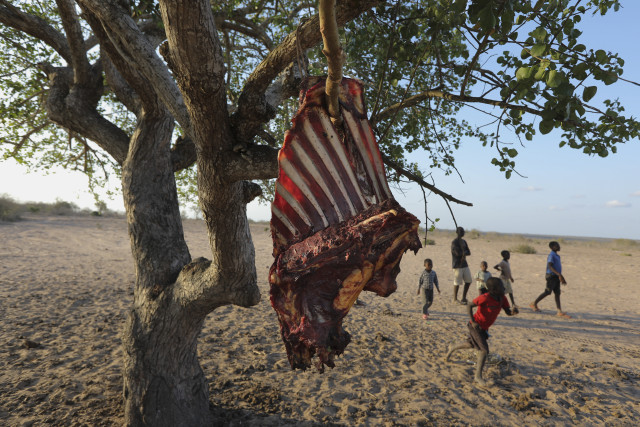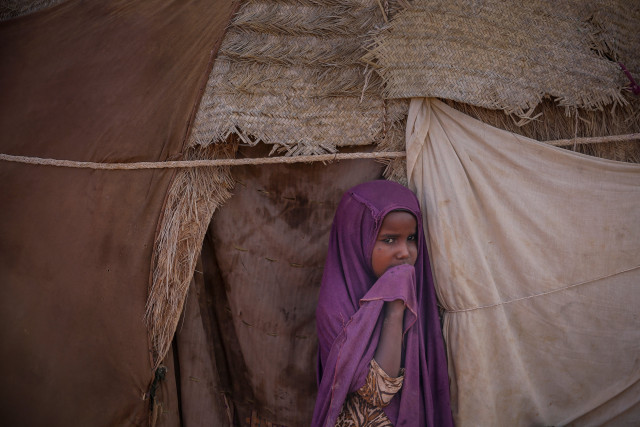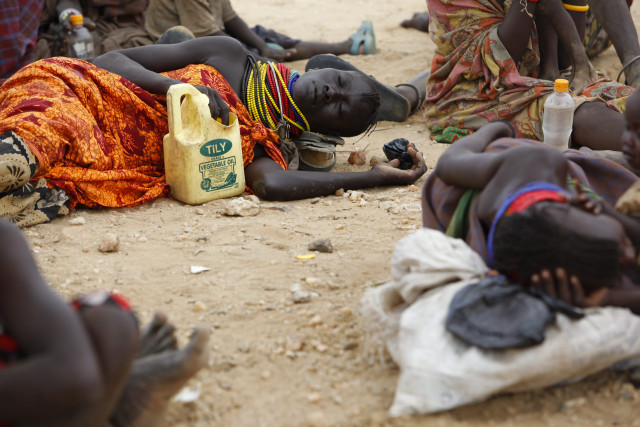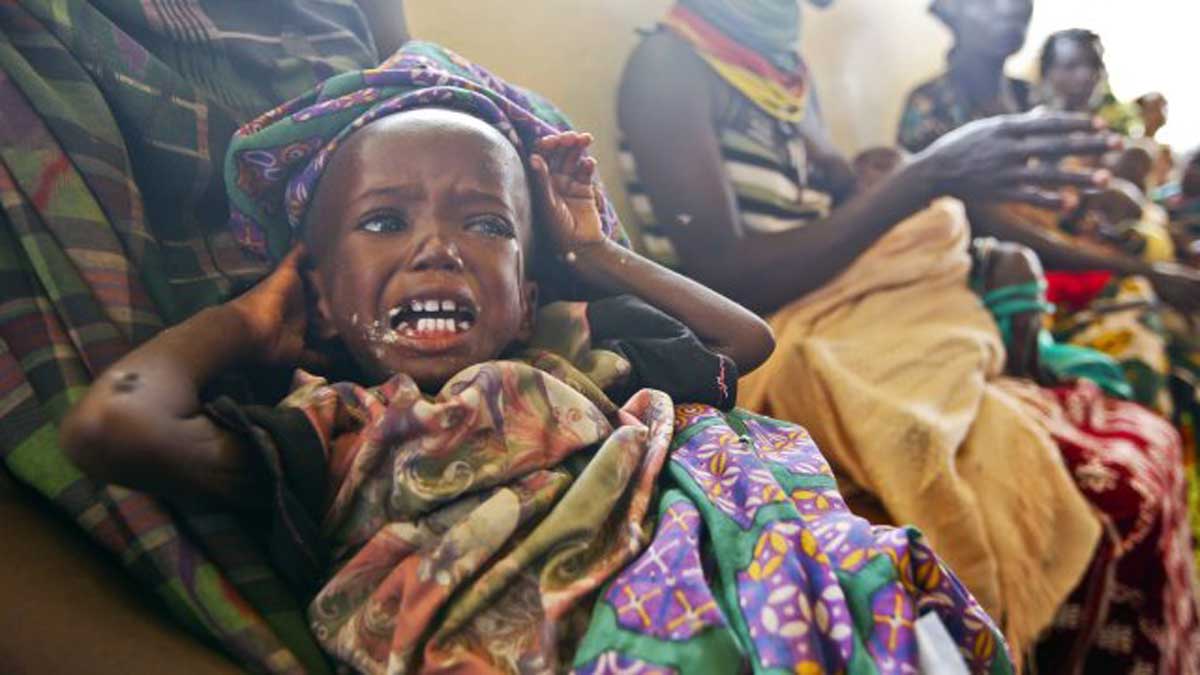The World Food Program (WFP) said on Tuesday that some 13 million people in Kenya, Somalia and Ethiopia face severe hunger as the Horn of Africa suffers its worst drought in decades. Three consecutive rainy seasons have failed to cope with the region’s worst drought since 1981, according to the United Nations.
The drought has destroyed crops and caused “unusually” high mortality, forcing rural families who depend on livestock and agriculture to leave their homes. Water and pasture are scarce, and below-average rainfall forecasts threaten more disasters in the coming months, said Michael Dunford, WFP Regional Director for East Africa.
“Crops have died, livestock are dying, and hunger is intensifying due to recurring droughts in the Horn of Africa,” he said.

“The situation calls for immediate humanitarian action” to avoid a recurrence of a crisis similar to that in Somalia in 2011, when 250,000 people starved to death during a prolonged drought.
Food aid is being distributed in the dry regions of Kenya, Ethiopia and Somalia, where levels of malnutrition are high and some 13 million people could face severe hunger in the first quarter of this year. About 5.7 million people are in need of food assistance in southern and southeastern Ethiopia, including half a million malnourished children and mothers.
In Somalia, the number of people classified as severely hungry is expected to rise from 3.5 million to 4.6 million by May unless emergency measures are taken.

Another 2.8 million people are in need of assistance in the southeast and north of Kenya, where a state of emergency was declared in September.
WFP said $327 million is needed to meet immediate needs over the next six months and to help pastoralist communities become more resilient to recurring climate shocks.
In 2011, a lack of rain led to the driest year since 1951 in the dry regions of Kenya, Somalia, Ethiopia, Djibouti and Uganda.

Experts say extreme weather events are becoming more frequent and intense due to climate change, with Africa, the least contributor to global warming, bearing the brunt.

